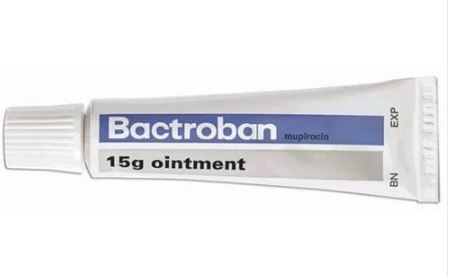Bactroban is an antibiotic used to treat certain skin infections. It stops bacteria from growing on the skin and is particularly effective for staphylococcus infection of the skin or impetigo.
How to use Bactroban
Bactroban is available as a topical ointment; you should apply it on the affected area of your skin 3 times daily for 10 days. Also, follow the directions on the prescription label or follow your doctor’s prescription; do not use the medication in smaller or larger amounts than prescribed by your doctor.
Bactroban is for external use only; do not take it by mouth. If it gets into your nose, eyes, or mouth, rinse it off with water. Wash your hands before and after applying the medication to your skin.
To use Bactroban, clean the affected area of the skin and use a cotton swab to apply small amounts of the ointment on your skin. Do not spread it on large areas of your skin, and use a sterile gauze pad to cover the treated skin. Avoid using a bandage or any covering that doesn’t allow air to circulate. Also, if symptoms do not improve after 3 to 6 days, you should seek medical attention.
Side Effects
The side effects of Bactroban can vary for different people, but the common ones include pain, burning, itching, and stinging on your skin. These usually go away after a while or when your treatment is complete, but if it gets unbearable, you should stop the medication and seek medical advice. Some other severe side effects that may occur from Bactroban use include
- New skin infections.
- Severe stomach pain.
- Unusual skin peeling and blistering.
- Diarrhoea that may be bloody and watery.
- Severe rash, itching or other irritation on the treated area of the skin.
Precautions
Before using this medication, tell your doctor if you have kidney problems or are allergic to its active or inactive ingredients, such as polyethene glycol. Also, if you are pregnant or breastfeeding, ask your doctor about the risks and benefits of using this medication before you decide to use it.



